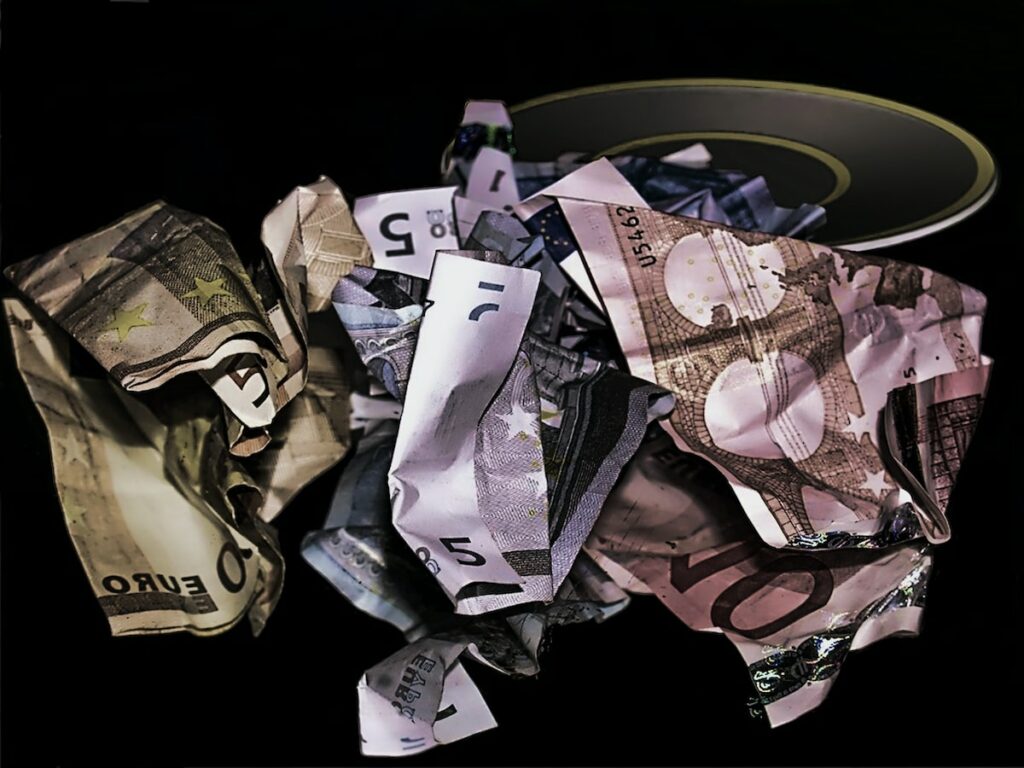Cash Budget Definition
A cash budget is a detailed financial document that outlines the estimate of cash inflows (income) and outflows (expenses) for a specific period of time, usually to ensure that an individual or business has sufficient cash to meet its obligations. It helps in managing liquidity and in planning for future cash needs.
Components of a Cash Budget
The key components of a cash budget typically include cash inflows, cash outflows, and the ending cash balance.
Cash Inflows
Cash inflows comprise all the cash that a company or individual expects to receive within a specific period. This could be from sales of goods or services, debt collection, asset sale, return on investments, or other sources of income. In company settings, inflows usually come from operations such as sales and may also include cash from financing activities such as loans or investments.
Extensive tracking and management of cash inflows allow for better financial planning. For instance, knowing your anticipated cash inflows helps in determining whether you can afford to engage in certain investments or need to find additional sources of income.
Cash Outflows
Moving on, we have the cash outflows. These are amounts that you anticipate spending within a specific period. These could be routine operational expenses like wages or rent, purchases of assets or investments, payment of debts, or any other form of expenditure. In a business setting, outflows could emerge from operational activities such as purchasing inventory, as well as financing activities such as paying off loans.
Assessing your cash outflows is equally critical in managing finances. By identifying and controlling unnecessary or excessive expenditure, you can reduce your outflows, which in turn can boost cash inflow rates or even result in accumulated savings.
Ending Cash Balance
Finally, the ending cash balance signifies the cash amount that remains at the end of the budget period, given the starting cash balance, cash inflows, and cash outflows.
The ending balance provides valuable insights into a company's financial health and sustainability. A consistently high ending balance indicates sustainable operations, while frequent negative balances could signify financial troubles. This information is instrumental in making strategic financial decisions. It can guide actions relating to borrowing, investments, expenditure scaling, and even inform dividend distribution in the context of businesses.
Remember, the ultimate role of each component of a cash budget is to aid in revenue optimization, better expenditure control, and overall financial health. Each part has its own importance but collectively, they provide a comprehensive picture of financial status and growth.,
Benefits of Cash Budgeting
Sure, below is the information presented in markdown format:
Increased Financial Awareness
One of the key advantages of maintaining a cash budget is the heightened awareness it brings to your financial situation. It provides a clear and detailed view of income versus expenditures, allowing you to see where your money is going each month. This awareness can act as a reality check and encourage you to reevaluate your spending habits where necessary.
Capability to Make Informed Spending Decisions
The transparency provided by a cash budget paves the way for conscious, informed spending decisions. With a comprehensive overview of your income and expenses, you can plan ahead and allocate funds accordingly. It empowers you to make wise choices without having to guess or make assumptions. You can identify non-essential expenses and determine whether certain costs can be scaled back or cut out entirely.
Improved Saving Habits
Not only does a cash budget help in managing your current income and expenses, it also aids in fostering improved savings habits. By setting firm spending limits, you naturally create opportunities to save more. A well-maintained cash budget can reveal surplus money that could potentially be channeled into your savings account. This systematic saving approach can facilitate reaching financial goals, whether it's for an emergency fund, vacation, or retirement.
Efficient Debt Management
If you have loans or debts, a cash budget can be instrumental in efficient debt management. With a full view of your financial situation, you can strategize a payment schedule that aligns with your income and other expenses. This helps to avoid defaulting, late fees, and potential issues with your credit score.
Stress Reduction
Lastly, although less quantifiable, the peace of mind that cash budgeting brings cannot be underestimated. Knowing your financial status and being in control reduces stress and anxiety related to money matters. It provides a level of financial certainty and helps avoid unpleasant financial surprises down the line.
Challenges in Cash Budgeting
In crafting a cash budget, there are inevitable challenges and pitfalls that one may encounter. These can render the budget less useful and even counterproductive if not properly managed. Here, we will examine some of the most common obstacles and how they may impact the efficacy of a cash budget.
Inaccurate Revenue Predictions
Firstly, one of the principal hurdles is inaccurate revenue predictions. Estimating future income is an art in itself and inaccuracies can lead to significant budgetary discrepancies down the line. Overestimating your revenue may result in overspending, while underestimating can result in missed opportunities or unnecessary cost-cutting measures. This is especially tricky for businesses with irregular income streams, where predicting future income becomes even more of a challenge.
Unexpected Expenses
Another typical challenge in cash budgeting comes in the form of unexpected expenses. These can arise from various sources such as emergencies, price hikes, repairs, or unforeseen operational costs. No matter how meticulously crafted your budget is, it can quickly be thrown into disarray by an unanticipated outlay. Prudence dictates creating a contingency fund to handle such events, but doing so might also limit the cash available for other planned activities.
Volatility in Cash Flows
Perhaps one of the more complex problems in cash budgeting is managing volatility in cash flows. This can be particularly problematic for entities engaged in industries prone to seasonal variations or cyclical demand. It is crucial for these businesses to meticulously align their expenditure with their anticipated revenues, or risk running into liquidity issues.
To summarize, accurate revenue prediction, unexpected expenses, and volatility in cash flows pose significant challenges in cash budgeting. Understanding these difficulties and considering them while preparing a cash budget can equip businesses to predict and manage their cash flow more effectively, paving the way for more sustainable financial health.
Cash Budget vs. Accrual Accounting
Comparing Cash Budgeting and Accrual Accounting
Cash budgeting and accrual accounting are two different tools used for managing the financial aspects of a company, each with its own pros and cons.
Cash Budgeting
Firstly, cash budgeting is known for its simplicity and directness. Businesses get a clear picture of their cash inflow and outflow, making it straightforward to manage assets in the short term.
However, its simplicity can also be a drawback. Cash budgeting doesn't account for credit transactions until cash is exchanged, potentially painting an incomplete financial picture. It is also poor at integrating overall growth prospects, since it focuses exclusively on cash.
Cash budgeting is suited to small businesses or those with tight cash flows – where short-term assets management is a priority and credit transactions are minimal or non-existent.
Accrual Accounting
On the other hand, accrual accounting provides a more holistic perspective of the company's finances. It records expenses and income when they're incurred or earned, not simply when cash changes hands.
Although providing a more detailed picture, accrual accounting is more complex and requires a higher degree of understanding, competency and time investment. It also can make short-term cash management harder, since accruing revenues and expenses might not be immediately reflected in cash flow.
Accrual accounting is suitable for businesses with moderate-to-high volume of credit transactions and those aspiring for or experiencing growth. It's less appropriate for businesses that focus heavily on cash transactions or have limited resources for accounting.
In conclusion, both methods have distinct advantages and are applicable in different settings. A careful assessment of your company's size, growth prospects, transaction methods and resources can guide the choice between cash budgeting and accrual accounting.
Role of Cash Budgeting in Financial Planning
Cash budgeting plays an integral role in a company's overall financial planning strategy by supporting informed decisions about capital allocation, risk management, and achieving long-term financial goals.
Capital Allocation
A cash budget is a fundamental tool when considering capital allocation, i.e., how a company divides and directs its financial resources. It offers a clear understanding of the incoming and outgoing funds, enabling companies to determine the best use for their available capital. Without a cash budget, it becomes significantly harder to identify the areas in a company that need or could use more capital, such as expansion, research and development, or inventory growth.
Risk Management
In terms of risk management, a cash budget can act as an early warning system. It estimates future cash inflows and outflows and thus helps businesses forecast potential cash shortages or excesses. Effective cash budgeting allows businesses to anticipate cash flow problems, providing opportunities to proactively address the situation. By allowing a company to prepare for a cash crunch or surplus in advance, it can prevent damage to its credit rating and business relationships or take advantage of investment opportunities.
Achieving Financial Goals
Finally, a cash budget plays a pivotal role in setting and achieving financial goals. It sets a financial roadmap for management to follow, enabling leaders to determine whether the company is on track to meet its objectives. Regular review and revision of cash budgets help adjust the path, ensuring the company stays on the right track to meet its monetary targets. It encourages discipline in spending and prompts constructive conversation about cost-saving measures or potential growth opportunities that contribute directly towards profitability goals.
In all, successful cash budgeting acts as the backbone of thorough financial planning and can significantly influence a company's effectiveness in managing ongoing capital needs, mitigating financial risks, and propelling towards financial targets.
Implications of Cash Budgets in CSR and Sustainability
Cash budgeting is an important tool that can indirectly support Corporate Social Responsibility (CSR) initiatives and sustainability goals. This might initially appear non-intuitive, given that cash budgets primarily deal with the management of inflows and outflows of cash in a business, and appear far removed from environmental and social concerns. However, the connection becomes clearer upon a more detailed investigation.
Efficient Use of Resources
Firstly, a cash budget can promote the efficient use of resources. With a well-managed cash budget, a company can carefully plan its expenditures, focusing on areas that yield the highest returns or contribute more substantially to its growth. By highlighting costly or inefficient areas, companies could be persuaded to find alternative methods or materials that are not only cost-effective but more sustainable.
For example, a company could realize through its cash budgeting process that its energy costs are higher than the industry standard. To reduce these costs, it might decide to invest in renewable energy sources such as solar panels or wind turbines. While requiring initial investments, these energy sources would reduce running costs in the longer term and also align the company with CSR norms and sustainability goals.
Minimizing Waste
Secondly, cash budgets can help in minimizing waste. Since a cash budget involves carefully monitoring inflows and outflows based on calculated estimation, it prevents both direct and indirect wastage. Direct in terms of tangible resources like raw materials, time, or labor, and indirect in terms of opportunity costs.
For instance, companies may cut down on surplus raw materials that would otherwise go to waste, instead opting to purchase based on accurate projection of demand via cash budgeting. Simultaneously by assigning the available cash to profitable projects over non-profitable ones, the opportunity cost is minimized.
Furthermore, reduced wastage promotes sustainability by lessening the demand for natural resources and lowering the amount of waste generated that ends up in landfills – thus fulfilling a key sustainability goal.
Trust and Reputation
Finally, the cash budget can indirectly contribute to CSR by helping build trust and improve a company’s reputation. Well-managed finances are often an indication of strong business management, which can boost stakeholder confidence. This increased trust can also enhance the company's reputation with regards to being a responsible and sustainable enterprise.
Therefore, while cash budgeting may not be the first thing to come to mind when considering CSR and sustainability, careful and intelligent use of this tool can certainly help an organization improve its environmental and social impact.
Software and Tools for Cash Budgeting
The inception of the digital world has made cash budgeting become an easier and more efficient task, due to the availability of several software and tools for this task. These tools streamline the process of cash budgeting and enhance accuracy, efficiency, and forecasting capabilities.
Using Spreadsheets for Cash Budgeting
Spreadsheets such as Microsoft Excel and Google Sheets are a common tool for cash budgeting, mainly due to their flexibility and ease of use. They allow you to keep track of income and expenses in real-time, apply mathematical functions for automatic calculations, and create charts and graphs for visual representations of your budget. However, spreadsheets require an initial setup time and a good understanding of the software. They also can be prone to human errors in data entry or formula setup.
Envelopes: A Traditional Budgeting Tool
The envelope system is a traditional but very effective method for cash budgeting. Each envelope represents a specific budgeting category, like groceries, rent, or utilities, with the budgeted amount of cash inside. Once the cash in the envelope is gone, spending in that category is done for the month. Some apps like Goodbudget have digitized this concept for modern use.
Budgeting Software
There are various budgeting software available that are designed to automate and simplify the budgeting process. These can range from simple applications focusing on expense tracking and budget creation, to sophisticated software allowing for real-time financial data synchronization, financial reporting and forecasting. Examples include Quicken, Mint, and You Need a Budget (YNAB). These digital tools often provide a more real-time and comprehensive picture of your financial situation, and some even give you the option to categorize your expenses and set budget goals.
Online Budgeting Tools
Online tools such as Mint, PocketGuard, and Personal Capital allow you to link various financial accounts together, giving you a centralized interface to view your budgeting information. These tools automatically update and categorize your transactions, reducing the hassle of manual entry.
All these software and tools have their own strengths and limitations. It’s important to try out different ones and find the one that best suits your personal needs and cash budgeting goals. They can significantly enhance the management and visibility of your finances, making the often daunting task of budgeting a much more manageable and even enjoyable process.
Remember, the key to successful cash budgeting is consistency, accuracy, and regular reviews of your income and expenses to stay on track. Therefore, finding a tool that you are comfortable with and can reliably use is critical in maintaining a successful cash budget.
Maintaining a Flexible Cash Budget
Maintaining a flexible cash budget offers you financial stability amidst unforeseen changes in your economic situation. Here are a few tips that can guide you.
Regular Reviews
It is vital to review your cash budget regularly. This will ensure your budget reflects any changes in your income and expenses and help you adjust appropriately. For monthly budgeters, an end-of-month review would be ideal. If there are frequently changing variables in your budget, it might be worth reviewing bi-monthly or even weekly.
Scenario-Based Changes
It's beneficial to factor in potential scenario-based changes. This means thinking ahead about possible alterations in your financial situation and planning your cash budget accordingly. For example, how will your budget change if you were to lose your job? Or what if you receive a hefty end-of-year bonus? By considering both negative and positive scenarios, you can prepare a cash budget that is flexible and can easily adapt to changes.
Keeping a Buffer
Lastly, always keep a buffer for unexpected expenses. This could be an unforeseen medical bill, an abrupt car repair, or sudden home maintenance. By allocating a certain amount in your budget specifically for unanticipated costs, you can mitigate stress related to unforeseen financial hurdles. This also prevents you from tapping into funds allocated for necessities or savings.
To sum it up, regularly reviewing your cash budget, accounting for scenario-based changes, and keeping a buffer for unpredictable expenses can help make your cash budget adaptable enough to handle fluctuations efficiently.









